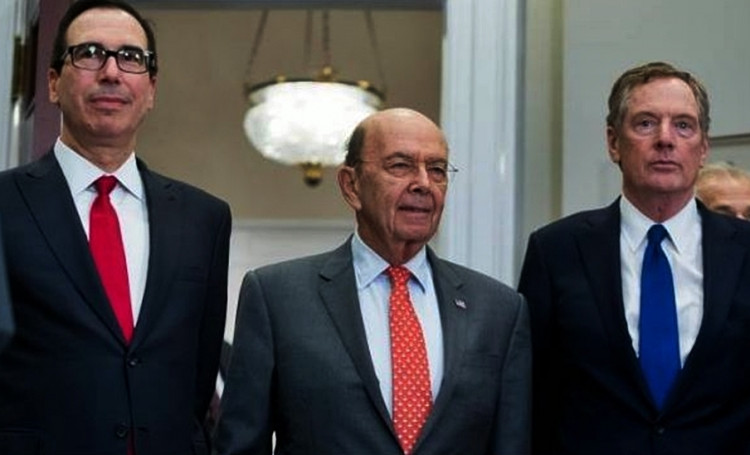Let's hope this piece of good news is really good news.
Myron Brilliant, executive vice president for international affairs of the United States Chamber of Commerce (USCC), the largest lobbying group in the U.S., claims the U.S. and China have reached agreement on 90 percent of the issues being tackled at the ongoing trade talks.
Ominously, however, Brilliant admitted both sides have yet to make any progress on the remaining 10 percent, which remains unsolvable. Among these issues: Washington hasn't acceded to Beijing's demands it removes existing U.S. tariffs on Chinese goods. On the other hand, China hasn't agreed to the contentious terms of an enforcement and implementation mechanism ensuring China will honor the deal.
The haggling goes on.
Brilliant told world media that 90 percent of the deal has been sewed-up. It's the remaining 10 percent that's proving the trickiest. He said this remaining fraction will require trade-offs on both sides, which seems unlikely at this time.
U.S. Trade Representative Robert Lighthizer and Treasury Secretary Steven Mnuchin will resume talks with Chinese Vice Premier Liu He on Wednesday. Both sides previously reported some progress in talks now taking place in Beijing.
There is, however, no way to verify if any meaningful progress is being made at the talks since both sides have refused to issue detailed statements, and have limited themselves to claiming progress is being made.
The penalty for the failure of these talks will be severe. On Monday, Mark Zandi, Moody's Analytics Chief Economist, said it is "highly likely" the world will enter into an economic recession if the U.S. and China don't reach a trade deal before July.
"Business sentiment across the globe is extraordinarily fragile," said Zandi on CNBC.
He revealed a survey conducted by Moody's recently shows that confidence among companies was at its weakest since the end of the financial crisis a decade ago.
"Businesses are really on edge and I think it's because of this trade war. And if it's not settled in the next couple (to) three months, I think a global recession is highly likely."
Increasing the odds of a recession is a "No-Deal Brexit," which now is at an "uncomfortably high" level. Zandi warned a No-Deal Brexit might plunge Europe into a recession
Zandi said that if talks between the U.S. and China fail, which still seems likely, and end without a trade deal, this will hurt business sentiment further. One result will be companies reducing hiring, he said. When that happens, unemployment will rise, causing consumers to lose faith in the economy. A recession can't be far off in this grim scenario.
"The difference between an expanding economy and a recessionary one is simply faith -- faith that the economy is going to be okay. And if you lose faith, no central banks are going to get that back. That's a recession," said Zandi.






